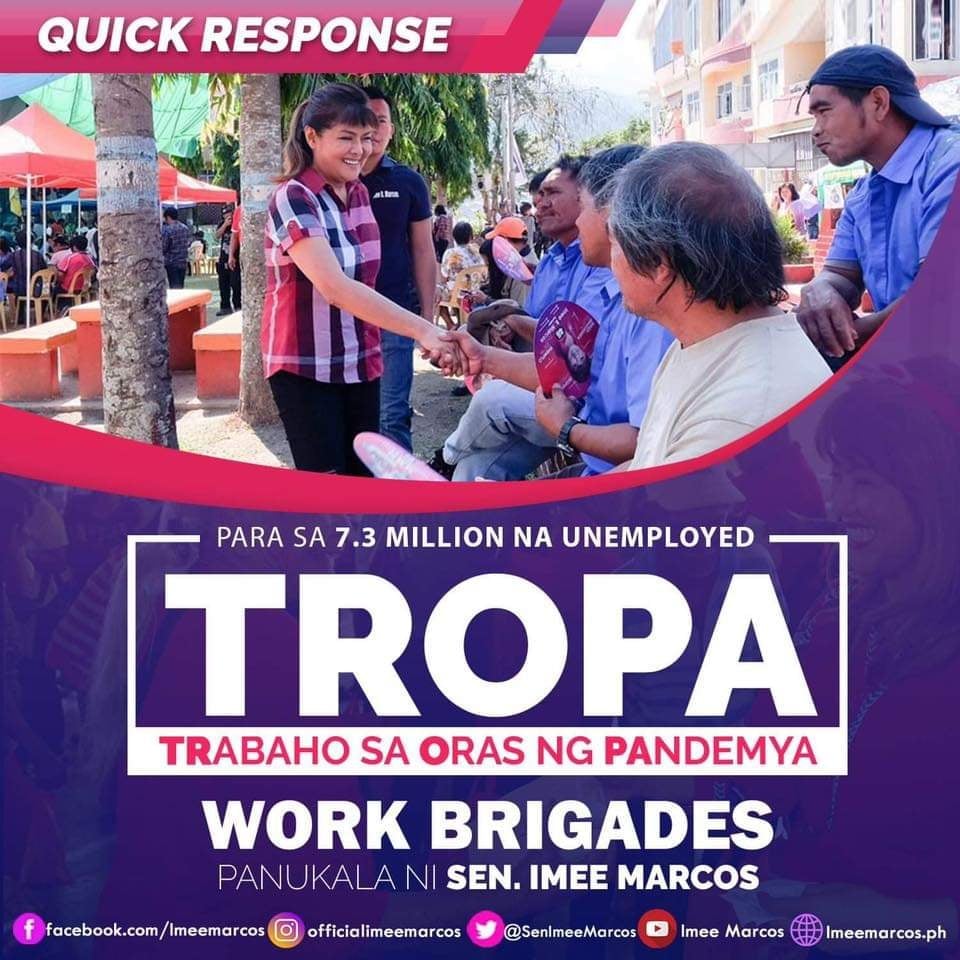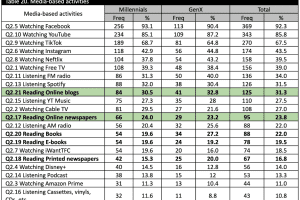The alarming rate of 7.3 million job losses in April cannot wait for both Houses of Congress to resume business in July and must be contained immediately, Senator Imee Marcos said.
Marcos, who chairs the Senate committee on economic affairs, plans to file a quick-response measure called TROPA or the “Trabaho sa Oras ng Pandemya Act” on Monday morning, just three days after Congress had adjourned its first session.
“Unemployed workers in the creative industries, tourism, and agriculture are the hardest hit since the lockdowns started and have needed jobs long before yesterday,” Marcos said.
“TROPA seeks to consolidate legislative measures proposed to aid skilled and unskilled workers through this pandemic, including wage subsidies and cash-for-work programs of the Department of Labor and Employment and the Department of Social Welfare and Development,” Marcos explained.
The number of Filipinos out of work represents a 17.7 percent increase in unemployment, the highest rate ever recorded in the country, according to Philippine Statistics Authority data as of April 2020.
“Jobs can be assigned at once for country’s Build-Build-Build projects which must go on, as well as those for community health and sanitation. Local government units can also create jobs oriented toward the hoped-for boom in the country’s tourism when the pandemic eases, as predicted recently by Forbes magazine,” Marcos said.
Even if travel restrictions ease, caution will remain and create “tourism bubbles,” wherein neighboring provinces will rely on each other’s patronage, Marcos said.
The TROPA bill allots an initial P200 million to be managed by a council of government agency heads led by Secretary Silvestre Bello III of the Department of Labor and Employment, with additional appropriations to be determined by the Department of Budget and Management thereafter.
The TROPA bill directs the council to ensure living wages under humane working conditions, health insurance and hazard pay, and social security benefits, with leave privileges to be granted on a case-to-case basis. (30)












